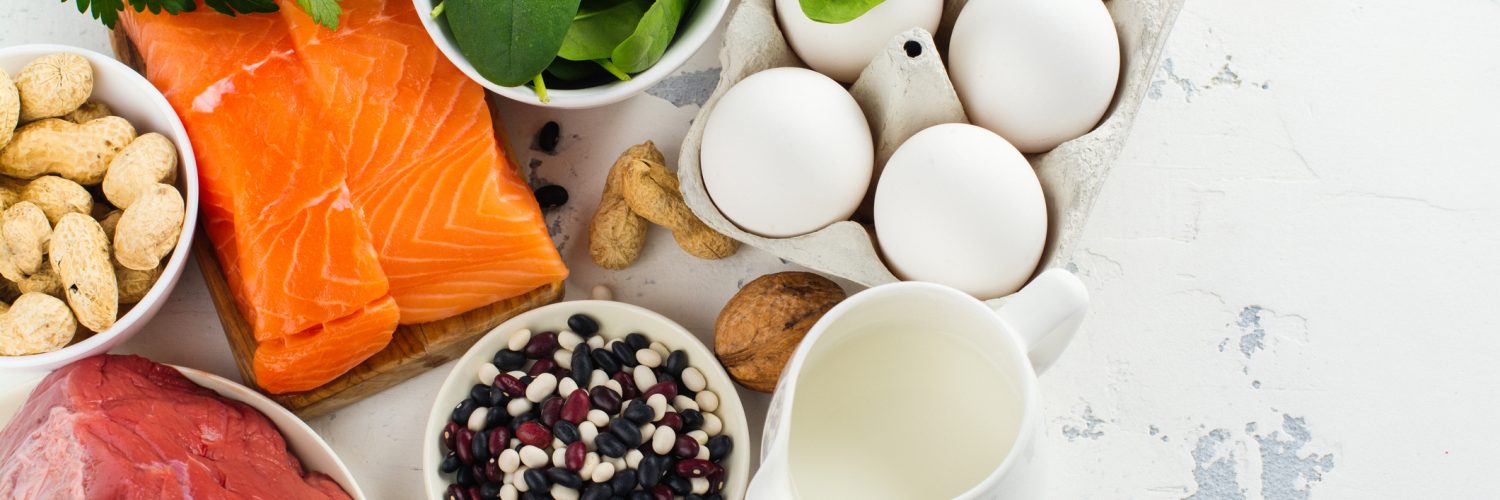High protein diets have been a subject of some debate over the past decade. There is a widespread misconception that high protein diets can cause bone demineralization and damage kidneys. This is absolutely false, unless you already have a kidney issue. There was also a case study that linked high protein diets to renal issues, but this was based on just one person who already had a preexisting renal condition. If you are healthy, a high protein diet is not only safe, but important for maintaining lean body mass, especially as you age.
According to the U.S. Government, the daily Recommended Dietary Allowance for protein is 0.8 g/kg body weight. (Here’s a handy online calculator for figuring out what that means for you.) When you hear people say that we are consuming “too much” protein, what they mean is that it is over this amount. But the RDA was set to prevent disease and deficiency, not to determine what your body needs to perform at its best. And I’m not even talking about athletic performance, I’m talking about performing daily life activities, like carrying groceries, getting up out of a chair, and doing domestic chores.

Getting adequate protein in your diet has been shown to decrease the loss of lean body mass that often comes with aging. As we age, it gets harder for our bodies to synthesize protein for muscle building. Leucine, an essential amino acid, has been touted as the master regulator to turn on muscle protein synthesis. Eating more protein increases leucine levels in the blood, which helps your body to build and maintain muscle mass.
Additionally, once we turn 50 or so, we start losing about 1% of our muscle mass per year — an effect known as Sarcopenia. Diets that lack protein and nutrient density, paired with a sedentary lifestyle, can quickly exacerbate this degenerative effect. But research shows that diets above 1-1.2 g/kg body mass/day, paired with resistance training exercise, can help reduce the sarcopenic effects.
Another benefit of protein is that it makes you feel fuller than other foods do, thanks to the amino acids circulating in your blood and the satiating hormones being released. It also has the highest thermic effect of any food, meaning that your body has to expend more energy to digest and absorb the nutrients, which increases your resting metabolic rate. This combination of metabolism-boosting and appetite-suppressing effects can help support weight loss and improve body composition by increasing lean body mass.

Still worried that high protein diets might be unhealthy? Recent studies of bodybuilders who consume extremely high protein diets showed no sign of any kidney or blood panel decrements. These well-trained males consumed upwards of 3.4g protein/kg body mass/day for over a year (far above the maximum amount considered to be beneficial for increasing lean body mass, which is 2 g/kg body mass/day) in order to demonstrate that chronic supra-high protein diets do not cause any harm to health.
Barring any preexisting kidney or renal issues, consuming more protein than the RDA is not only safe, but recommended, especially if you are athletic, overweight, aging. Long-term studies have demonstrated the safety and health benefits of high protein diets — so eat your protein to your heart’s content!
